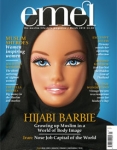
Safe Keeping - Inheritance in Islam
Issue 66 March 2010
In a time of financial instability, there is an increased search for financial advice. The different ways to save a large inheritance are examined by Personal banker Tarique Elimlahi.
Q) “I’ve inherited £40,000 from my father and I want to use it as a deposit on a house, but not for at least another year. In the meantime, where can I put it where it’s secure?”
A) This concern seems to be a popular one considering the economic chaos we’ve experienced over the past two years. Returns on investments have been hugely overshadowed by fear of security of investments. The most frequent question I have been asked is, “is my money safe?” It seems as though the nation’s savers number one aim was to withdraw funds and start saving the old fashioned way (keeping money in a box/jar under the floor boards).
The good news for you is that having £40,000 to put away for a year allows you more flexibility as more doors are open to you in terms of security. The Financial Services Compensation Schemes protects your investment with a company for up to £50,000. Simply knowing this should put your mind at ease and allows you more time to consider how you want to make your money work harder.
It’s no secret that banks look to their savings books to strengthen their position. This means that there are banks out there that are more than willing to fight for your money with competitive rates of interest (bearing in mind the Bank of England base rate is still 0.5%). The major banks average between 2-3% for a one-year fixed term product. Of course, you may be put off by the whole idea of earning interest.
An alternative would be Premium Bonds. If guaranteed returns are of no great importance to you then you may be onto a winner as you are guaranteed not to lose anything. Each bond you purchase is entered into a monthly draw where you have the chance of winning a cash prize and even becoming a millionaire. But if you don’t win any of the prizes, you won’t lose your initial bond investment. If you look at the premium bond for what it is, then you’re looking at a secure investment where you are guaranteed to at least get back what you’ve put in and you can withdraw your money at any time.
What if you feel your ethics are not being reflected in these options? Then there are the shari’ah complaint products and providers. The UK banking world has definitely acknowledged the presence of shari’ah complaint banking. So much so that HSBC even provides a shari’ah compliant product range named Amanah. However, there still seems to be work in progress as the Amanah range only provides Banking and Home Finance products. This leaves us with the UK’s first shari’ah complaint retail bank, the Islamic Bank of Britain. IBB do provide a range of savings accounts and most appropriately in this situation they provide a fixed term deposit account. Opening this account requires a minimum deposit of £1,000 and is available for three, six, 12 or 18 months. The target profit for these accounts range from 0.10% to 2.25% according to the term of account.
It is understandable and only human nature to worry about our finances, especially when the media has done such a top notch job of reminding us just how much of a recession we have been in. The key thing to remember is that all is not totally lost within our banking system and we don’t need to revert to ‘under the mattress’ tactics to have peace of mind. Don’t be afraid to walk into your local bank and speak to an advisor.
Inheritance in Islam
When a person dies, there are four rights that need to be performed on their property:
1. Pay his/her funeral and burial expenses
2. Pay his/her debts
3. Execute his will
4. Distribute the remainder of his/her estate according to Shari’ah law.
The following members family take priority over inheritance: spouse, children, parents, siblings, orphans, kith & kin and finally, the needy/destitute.
*emel Financial guidance is provided for informational purposes only and is not a substitute for professional financial advice. emel does not make any recommendation or endorsement to any investment, advisor or other service or product. In addition, emel does not offer any advice regarding the nature, potential value or suitability of any particular investment, security or investment strategy and you should seek your own professional financial advice.
Bookmark this |
|
Add to DIGG |
|
Add to del.icio.us |
|
Stumble this |
|
Share on Facebook |
|
Share this |
|
Send to a Friend |
|
Link to this |
|
Printer Friendly |
|
Print in plain text |
|


Comments
0 Comments